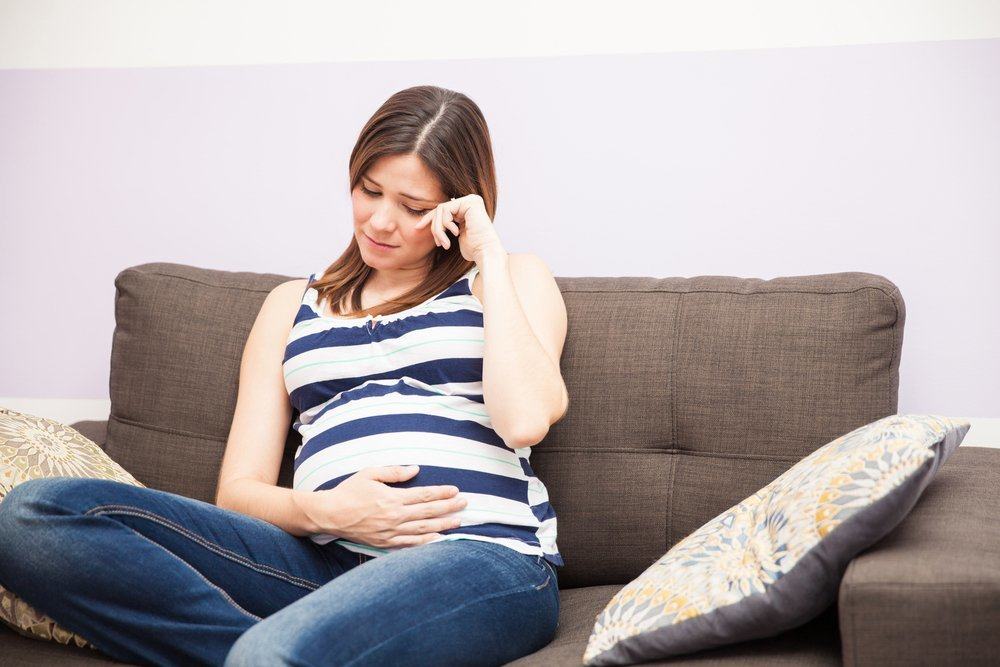Contents:
- Medical Video: 10 Useful Pregnancy Tips For Normal Delivery
- Stress during pregnancy can cause babies to be born prematurely
- Giving birth accompanied by many people can cause childbirth to last longer
- The importance of a conducive delivery environment if you want a smooth delivery
Medical Video: 10 Useful Pregnancy Tips For Normal Delivery
Childbirth is a happy moment as well as a place to gamble life and death. No wonder there are many new mothers who are also enveloped in taste fear, anxiety, and worry before the birth of the baby. Not to mention coupled with facing other daily stress sources, such as financial problems and household problems. You should start looking for ways to deal with the stress. Because, stress during pregnancy can inhibit the smooth delivery in various ways, which may endanger the safety of the baby and also yourself. Here's the explanation.
Stress during pregnancy can cause babies to be born prematurely
When stressed, the body produces cortisol and other stress hormones. The release of adrenaline and cortisol hormones over time causes an increase in heart rate and blood pressure, faster breathing, widening of blood vessels in the arms and legs, and increased blood glucose levels. This drastic change in the condition of the mother's body is the basis of the allegations of experts that stress during pregnancy can increase the risk of premature delivery.
But this does not mean that all stress will lead to premature babies. Regular stress, for example occasionally cranky with the husband because of his busy schedule at the office or forgetting to pay the electricity bill, it will not immediately cause you to give birth prematurely. If stress is handled as soon as possible, the body's response to stress will decrease and the body will return to its original state.
The problem is that when you collect from these ordinary stresses you continue to deepen in your heart and are left to gnaw the mind. Chronic stress can cause changes in heart function and the immune system in the long run. This deteriorating change can potentially lead to premature labor before the womb reaches 37 weeks. The definition of chronic stress here is for example dealing with divorce, the death of a loved one, long-term unemployment, severe stress related to pregnancy safety, to depression during pregnancy. It is severe and chronic stress that can increase the risk of preterm labor.
Research by Wadhwa, et al. reports that mothers who experience severe stress during pregnancy are more at high risk for preterm delivery and their babies have low birth weight. Wadhwa also said that some biological changes occur when mothers are stressed, including an increase in stress hormones, and increase the chances of uterine infection. The fetus will respond to stressful stimuli from the mother and adjust to the changes that occur.
Giving birth accompanied by many people can cause childbirth to last longer
The pain experienced during labor is probably the most painful moment in a woman's life. Although there are various ways to minimize the pain of childbirth, but the hustle and bustle of your surroundings without realizing it has a big role in determining how painful the experience is.
When you give birth, there are other people who will help you throughout the process - a team of doctors, nurses, and your husband. Maybe there will also be a biological mother or your mother-in-law to accompany, or even a photographer and videographer to capture this special moment. But being surrounded by so many people can trigger a mother's stress during childbirth, which causes the birth process to take longer than it should.
Research conducted by Judith A. Lothian published in the Journal of Perinatal Education (2004) reports that the environment of the birthing room that is surrounded by many people, the large number of questions and orders from doctors, and brightly lit glare can play a role in stimulating the brain to increase production kotekolamin stress hormone thus slows down the labor process and affects the level of pain during labor.
The increase in cotecolamine hormone production in mothers giving birth is in principle the same as mammals that give birth in the wild. In nature, when animals that give birth feel threatened or disturbed, the stress hormone catecholamine will be released to stop labor. This response is intended forbuy time for the animal's mother to escape from danger before finally labor begins again. Temporary cytecholamine release stops laboring to protect the mother and her child.
Likewise, when a woman who is giving birth does not feel safe or protected or when the flow of labor is interrupted or changed on one thing or another. In response to this stress, the body releases more levels of kotekolamin. Contractions can be very strong and difficult to handle or, usually, contractions become weaker. As a result, labor slows down or can stop completely. We, like other mammals, need to feel safe and protected to give birth easily. If we don't feel safe and protected during early labor, the catecholamine hormone levels can and stop labor.
The importance of a conducive delivery environment if you want a smooth delivery
Keeping your emotional condition stable is very important during labor. Therefore, do things you can do during pregnancy to overcome worries about entering labor. This is done to make you feel calm and confident in yourself, your partner, other birth attendants, and your midwife or doctor.Ask for understanding and support from the people around you to help increase your sense of security and strength in yourself.
You can also do integrated relaxation or meditation at any time during labor to help you build strength and confidence or to find out fears that might need to be addressed. Besides that,squeezed fear can be lost if you are given a comfortable environment during labor. Choose the best hospital for your childbirth that can give you privacy and comfort.
A calm and stress free environment during old pregnancy will reduce brain activity to produce stress hormones, and instead increase the release of prostaglandins and other hormones that can speed up the process of labor. The kotekolamine hormone can come back down to its normal level as soon as the mother starts to feel comfortable, so reflexively encourages the baby to start working again.














